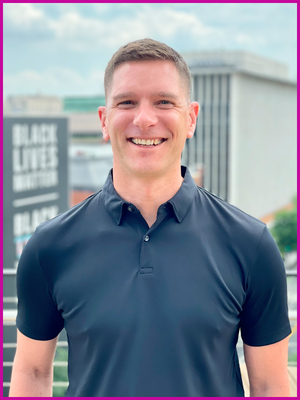Add on top of that the trauma everyone still and continues to have. Last week, the New York Times journalist Kara Swisher interviewed Randi Weingarten, the president of the American Federation of Teachers, on her podcast Sway. In that interview, Weingarten said: “COVID affected all of us differently. Communities that were poor, black, and brown got more affected. [COVID] created lots of trauma. And then having leadership that was more political as opposed to more focused on the health and safety of America was really problematic. So we have you know that crisis and then on top of it we had the death of George Floyd and then on top of it a 2020 election and then an Insurrection. So there's huge trauma… When people are so traumatized, when there's a question about future, when there's a question about what's going to happen to my kids, what’s going to happen in a year from now, my kids didn't get the graduation, they didn’t have kindergarten. It becomes easy to exploit this, and that's what I think is happening.” We have trauma being exploited on a number of levels, both hyper locally and nationally.
As Academic Leaders in independent schools, we have fewer tools for community and trust building that we had before and the tools that we do have are different (requiring us to build new skills), all at a time when we are surrounded by and experiencing trauma ourselves--meaning that building trust is more essential than ever. We had hoped that we could go back to our old tools of in-person connection this fall, but with the resurgence of COVID-19 outbreaks, being together in person is only an option for some of our families in some of our schools, and some of our communities. Returning to our old strategies and leaving out the people who aren’t ready or able to join us on campus isn’t an option, because it magnifies and expands the inequities that are already present on our campuses. We know that the COVID-19 pandemic is greatly impacting the health and well-being of our students, worrying parents and guardians further. A recent McKinsey survey noted that: “Roughly 80 percent of parents had some level of concern about their child’s mental health or social and emotional health and development since the pandemic began… Parents also report increases in clinical mental health conditions among their children, with a five-percentage-point increase in anxiety and a six-percentage-point increase in depression.” The CDC notes a 7 percent increase in mental health events among 5-11 and 12-17 year olds respectively during the COVID pandemic. And in turn, parents and caretakers themselves have reported elevated levels of stress. An APA study notes that 46% of parents have a high level of stress compared to 28% of non-parents. Parents and guardians need their schools to be partners in order to have a positive impact on the life of kids as never before. That’s why we’ll be exploring how Academic Leaders can work effectively with families and expand trust and connection within their communities throughout this month.
1 Comment
It is a very interesting topic. Have you had any challenges with building trust? I am referring to the situation when your actions were misinterpreted by students : eg building trust with parent interpreted as a conspiration by students. Do you have any suggestions to adddress this type of situation?
Reply
Leave a Reply. |
Don't miss our weekly blog posts by joining our newsletter mailing list below:AuthorsBrad Rathgeber (he/him/his) Archives
July 2024
Categories |


 RSS Feed
RSS Feed